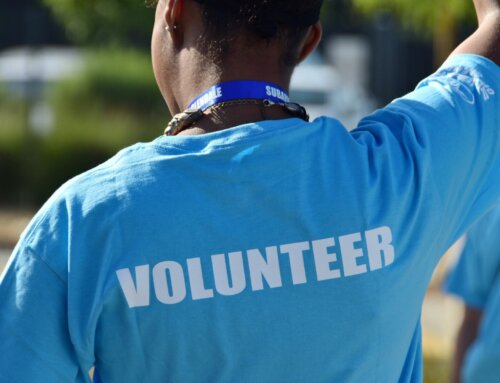
The entire adventure began while studying abroad and working for an NGO in Kenya. Sara realized that there were still many people struggling to survive, even as we move further and further in to the 21st century. She saw the organization for which she was working go from supporting a few 100 people (as they had been doing for about 8 years), to not being able to support anyone at all. Ultimately, they were forced to shut down. Sara witnessed firsthand how greatly this affected the small community and was determined to do something about it.

Along with her Kenyan business partner, Nick, they designed a way to help the community by investing in tea, which is the largest crop in the region. Today, Ajiri Tea, run out of Upper Black Eddy, PA in Upper Bucks County, has already changed many lives in the Kisii region.
How Does it Work?
Ajiri Tea buys hand-picked tea leaves from small scale farmers in the Kisii region. The tea is then processed by small factories that were built by the Kenyan Tea Development Agency, established specifically to help Kenyans grow and process tea.

School is very expensive in Kenya. Many families have been affected by HIV/AIDS, therefore forcing them taking on more and more family members. This makes it nearly impossible for the men and women to provide enough funds for the children to go to school.
What has Ajiri done so far?
Ajiri Tea currently sponsors 6 children from Kisii, 4 of which are in high school, 2 in elementary school. One of the women working for Ajiri was also recently able to purchase a cow with the money she's made from Ajiri, which, Sara stressed, is a huge deal for these Kenyans.
Where can you find Ajiri Tea?
Ajiri Tea can be found in various specialty stores throughout Bucks County (such as House of Coffee in Lahaska) and even across the US – 150 stores total! You can find a full list of the stores that carry Ajiri Tea here.
I asked Sara if there was anything she really wanted Bucks County to know about the tea. She replied, “That it's really, really good tea!” The Ajiri Kenyan black tea (which can be purchased either in loose leaf or teabag form) has no pesticides, is hand-picked, and was very well-received at the World Tea Expo by some of the leading names in tea production.
This unique tea not only makes an excellent gift, but you can be sure that with your purchase, every cent is going to someone truly in need. So the next time you're upset about your computer virus or having no cell phone service, just relax…and have a cup of tea!
To learn more about Ajiri Tea, visit their website and be sure to fan them on Facebook!
Enjoy your tea like a Kenyan!
Chai = tea (the drink) in Swahili
1. Mix milk and water together and bring water so that it's ALMOST to a boil
2. Lower the temperature and add loose leaf tea; stir
3. Turn temperature back up and when it's almost to a boil again, add 2-3 teaspoons of sugar
4. Stir again and as it begins to boil, remove and strain as you pour it into cups.
This post was written by Bucks County resident, Kara Hinrichs. Follow Kara on Twitter! @hgolightly12
We Are Supported By:





Join Our Community. Click here to learn more








